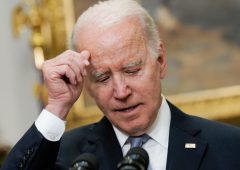HSBC Australia Bans Payments to Crypto Exchanges
25.07.2024 16:00 1 min. read Alexander StefanovHSBC Australia has implemented a ban on payments to cryptocurrency exchanges starting July 24, 2024.
This action, communicated via email, aims to safeguard customers from potential scams by blocking transactions from bank accounts and credit cards directed to these exchanges.
The move follows concerns highlighted by a report indicating that Australians lost up to $171 million to investment frauds last year. Regulators are increasingly wary of cryptocurrencies due to their association with money laundering risks, with expectations that these risks will grow over time.
Additionally, the Australian Taxation Office (ATO) is ramping up its scrutiny by gathering personal and transactional data from approximately 1.2 million crypto accounts to ensure proper tax reporting. This includes information on trading, selling, and using cryptocurrencies.
Cryptocurrencies are treated as assets in Australia, making any profits from them subject to capital gains tax. Despite these regulatory measures, cryptocurrency engagement remains high, with over 800,000 Australians participating in transactions over the past three years and significant interest in memecoins.
-
1
Wall Street Veteran Warns Tariffs Could Disrupt AI-Driven Market Rally
05.06.2025 12:00 1 min. read -
2
Circle Tops $1.1B in IPO as Demand Surpasses Expectations
05.06.2025 16:00 1 min. read -
3
Elon Musk and Donald Trump Clash in Fiery Policy Fallout
06.06.2025 8:00 2 min. read -
4
How One Musician’s $3M NFT Success Turned Into a Costly Tax Lesson
08.06.2025 19:00 1 min. read -
5
California Targets Dormant Crypto With New Custody Proposal
05.06.2025 19:00 2 min. read
Circle’s Market Cap Surges Past Its Own Stablecoin
Circle’s explosive entry into public markets has propelled its stock valuation beyond the supply value of its flagship stablecoin, USDC.
Federal Reserve Clears Path for Banks to Enter Crypto Market
In a significant policy shift, the U.S. Federal Reserve has quietly removed reputational risk as a factor in evaluating banks, a move that could make it easier for financial institutions to offer cryptocurrency services without fear of regulatory backlash.
Anthony Pompliano Unveils Bitcoin Treasury Giant After Landmark Merger
Investor and entrepreneur Anthony Pompliano is rolling his private outfit, ProCap BTC LLC, into blank-check firm Columbus Circle Capital to form ProCap Financial, a new Nasdaq-listed business built around Bitcoin.
FTX Pushes to Dismiss Billion-Dollar Claim from 3AC
FTX’s legal team has moved to dismiss a $1.53 billion claim filed by Three Arrows Capital (3AC), calling it an exaggerated and baseless attempt to recover losses from risky trading.
-
1
Wall Street Veteran Warns Tariffs Could Disrupt AI-Driven Market Rally
05.06.2025 12:00 1 min. read -
2
Circle Tops $1.1B in IPO as Demand Surpasses Expectations
05.06.2025 16:00 1 min. read -
3
Elon Musk and Donald Trump Clash in Fiery Policy Fallout
06.06.2025 8:00 2 min. read -
4
How One Musician’s $3M NFT Success Turned Into a Costly Tax Lesson
08.06.2025 19:00 1 min. read -
5
California Targets Dormant Crypto With New Custody Proposal
05.06.2025 19:00 2 min. read


